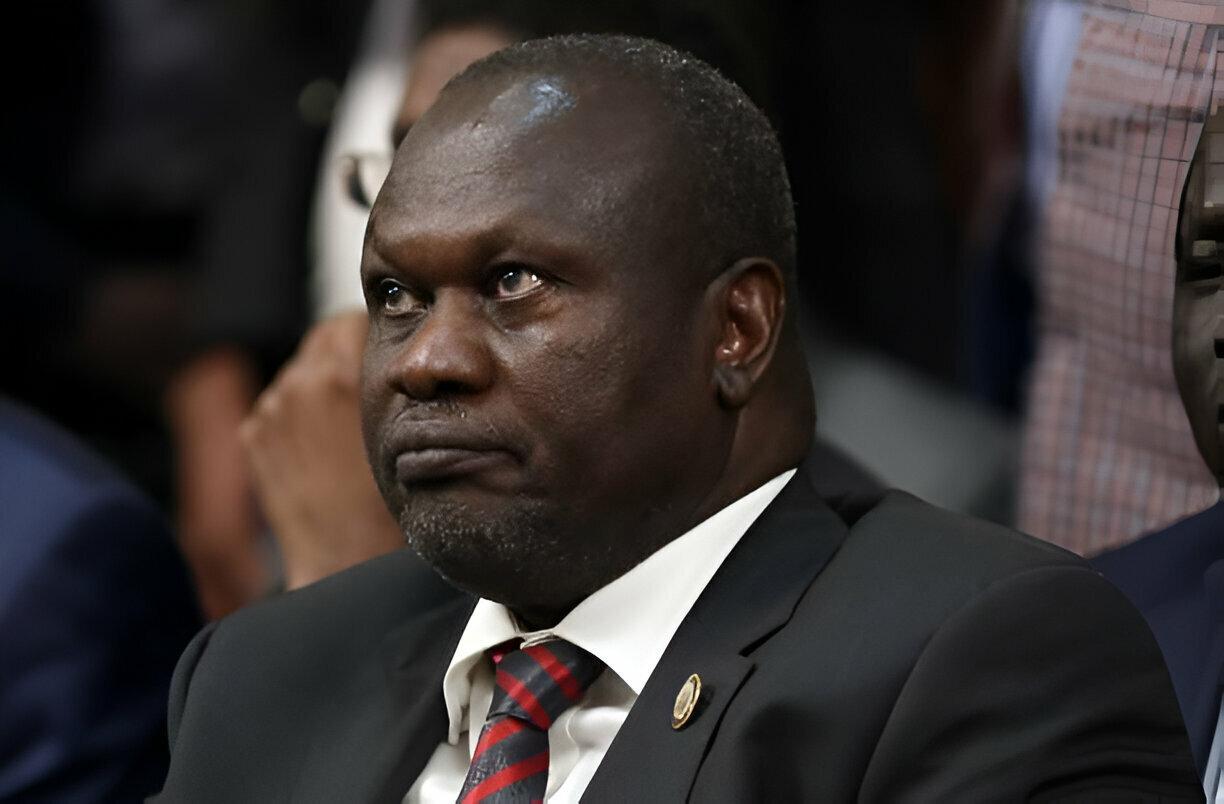Africa-Press – South-Sudan. Journalists were on Monday barred from covering the trial of suspended First Vice President Dr Riek Machar and seven of his co-accused, despite earlier assurances that the proceedings would be open to the media.
Reporters who arrived at the court in Juba said security personnel ordered them to leave, stating that only the state-owned South Sudan Broadcasting Corporation (SSBC) was permitted to cover the hearing. No official explanation was immediately given.
This comes in contrast to remarks made earlier by Justice Minister Dr Joseph Geng Akech, who had announced that the trial would be open to all media houses.
Machar is facing treason and murder charges linked to a March attack on an SSPDF base in Nasir, which reportedly left more than 200 soldiers and a senior general dead.
One journalist recounted being told that access required clearance from the Ministry of Information, Communication Technology and Postal Services—an instruction that had not been communicated beforehand.
“According to the press secretary in the Ministry of Justice, we were supposed to be cleared by the Ministry of Information, but this information was never shared. A security officer later told us they had been directed to only allow SSBC. Other media houses were told ‘OUT,’” the reporter said.
Another journalist added: “They denied me entry, saying media houses are not allowed except SSBC.”
The Union of Journalists of South Sudan (UJOSS) strongly condemned the decision, describing it as a violation of press freedom and a blow to the principle of open justice.
“The Union of Journalists of South Sudan (UJOSS) was dismayed this morning when its members who went to cover the commencement of the trial for the now suspended First Vice President, Dr Riek Machar, and his co-accused were denied entry into the court facility,” said UJOSS president Patrick Oyet.
He noted that restricting access only to SSBC undermines the role of other independent media outlets that serve diverse audiences across the country.
“Furthermore, the denial of access to court for journalists is a direct attack on freedom of the press as enshrined in Articles 24 and 32 of the Transitional Constitution of South Sudan, 2011, as amended. UJOSS condemns this act unequivocally, especially when the denial is facilitated by the Ministry of Justice and Constitutional Affairs, which is supposed to protect the constitution,” Oyet added.
UJOSS has called on the government to grant full media access to the trial of Dr Machar and other cases of public interest.
The government decision undermines transparency in a case of immense public interest, fuels speculation and mistrust among citizens, and raises concerns about selective access and government control of information.
It also weakens the principle of open justice, curtails press freedom guaranteed under South Sudan’s Transitional Constitution, and sets a dangerous precedent where critical proceedings may be shielded from independent scrutiny, potentially eroding both public confidence in the judiciary and the democratic process.
For More News And Analysis About South-Sudan Follow Africa-Press






